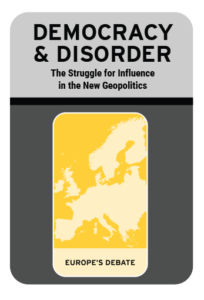 Russia and China increasingly are working to bring multilateral architectures into closer alignment with their own authoritarian norms, notes foreign policy analyst Will Moreland. Such a transformation is not in the interests of nations around the globe that seek to maintain democratic governance against the growing reach of authoritarian influence, he writes for the Brookings Institution:
Russia and China increasingly are working to bring multilateral architectures into closer alignment with their own authoritarian norms, notes foreign policy analyst Will Moreland. Such a transformation is not in the interests of nations around the globe that seek to maintain democratic governance against the growing reach of authoritarian influence, he writes for the Brookings Institution:
Globalization’s ties have created deep interconnections and vulnerabilities between democratic and authoritarian states. As states continue to “weaponize” those channels, and China presents a true global economic challenge to the market democracies, the United States and other democratic countries must move toward a conception of multilateralism that defends democratic interests within existing, and even new, architectures.
 As great-power competition casts a shadow over today’s multilateral systems, we must recall lessons from beyond the past quarter-century, adds Moreland (right), a former Penn Kemble fellow at the National Endowment for Democracy. To meet rising geopolitical challenges, democratic countries ought to approach multilateral architectures through a framework along three complementary lines:
As great-power competition casts a shadow over today’s multilateral systems, we must recall lessons from beyond the past quarter-century, adds Moreland (right), a former Penn Kemble fellow at the National Endowment for Democracy. To meet rising geopolitical challenges, democratic countries ought to approach multilateral architectures through a framework along three complementary lines:
- Continue to support measured collaboration on shared challenges;
- Create or revitalize fora to provide for deconfliction and crisis off-ramps; and
- Compete selectively both within existing institutions and via new ones to better defend democratic values against authoritarian rivals.
“A strategic outlook of competitive multilateralism seeks a rebalance among these three dimensions so that democratic governments are best positioned to strive to avert the specter of conflict without sacrificing liberty and prosperity,” he concludes. RTWT







